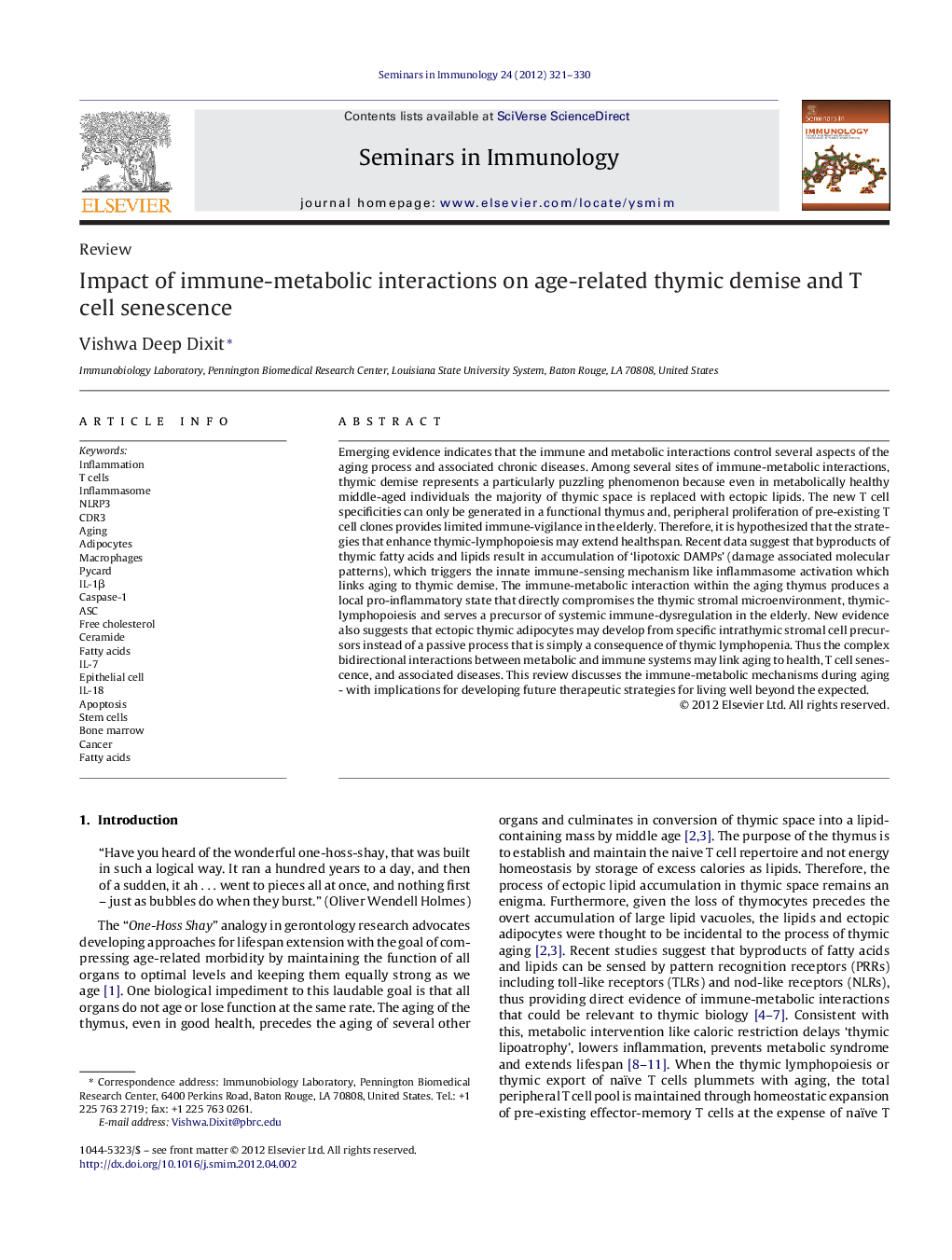| Article ID | Journal | Published Year | Pages | File Type |
|---|---|---|---|---|
| 3391429 | Seminars in Immunology | 2012 | 10 Pages |
Emerging evidence indicates that the immune and metabolic interactions control several aspects of the aging process and associated chronic diseases. Among several sites of immune-metabolic interactions, thymic demise represents a particularly puzzling phenomenon because even in metabolically healthy middle-aged individuals the majority of thymic space is replaced with ectopic lipids. The new T cell specificities can only be generated in a functional thymus and, peripheral proliferation of pre-existing T cell clones provides limited immune-vigilance in the elderly. Therefore, it is hypothesized that the strategies that enhance thymic-lymphopoiesis may extend healthspan. Recent data suggest that byproducts of thymic fatty acids and lipids result in accumulation of ‘lipotoxic DAMPs’ (damage associated molecular patterns), which triggers the innate immune-sensing mechanism like inflammasome activation which links aging to thymic demise. The immune-metabolic interaction within the aging thymus produces a local pro-inflammatory state that directly compromises the thymic stromal microenvironment, thymic-lymphopoiesis and serves a precursor of systemic immune-dysregulation in the elderly. New evidence also suggests that ectopic thymic adipocytes may develop from specific intrathymic stromal cell precursors instead of a passive process that is simply a consequence of thymic lymphopenia. Thus the complex bidirectional interactions between metabolic and immune systems may link aging to health, T cell senescence, and associated diseases. This review discusses the immune-metabolic mechanisms during aging - with implications for developing future therapeutic strategies for living well beyond the expected.
► The thymic ceramides and free cholesterol increase with age. ► Age-related thymic lipotoxcity induced caspase-1 activation via the Nlrp3 inflamamsome. ► Subsets of ectopic adipocytes emerge from intrathymic progenitors. ► Metabolic hormones regulate age-related thymic involution.
